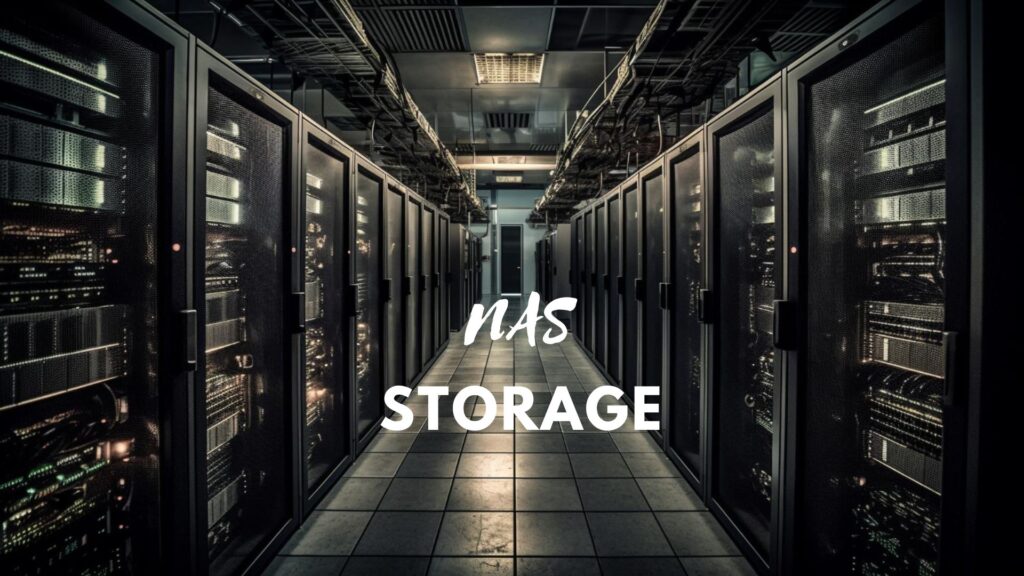As the amount of data continues to grow exponentially, it’s becoming increasingly important to have a reliable and scalable storage solution in place. Network-Attached Storage or NAS is one such solution that has been around for a while now. However, the technology behind NAS storage is constantly evolving to keep up with the demand for faster and more efficient data storage solutions. In this blog post, we’ll be taking a look at some of the latest trends and innovations in NAS storage that are shaping the future of data storage. Let’s take a look at what is nas before we discuss future trends of NAS storage.
NAS is a file-level computer data storage server connected to a computer network providing data access to a heterogeneous group of clients. The term “NAS” can refer to both the technology and systems involved, or a specialized device built for such functionality.
NAS devices are typically used to store and share files over a local area network (LAN). They are often used in small businesses and homes to centralize file storage and make it accessible to multiple users. NAS devices can also be used to store backups, media files, and other data.

Here are some of the latest trends and innovations in NAS storage:
Hybrid and Cloud Integration
One of the biggest trends in NAS storage right now is the integration of hybrid and cloud solutions. Hybrid NAS solutions allow organizations to create a seamless connection between their physical and cloud storage. This not only improves performance and efficiency but also provides greater flexibility in terms of data access and sharing. Cloud integration provides increased scalability and reduces the risk of data loss or corruption. It’s safe to say that the future of NAS storage lies in hybrid and cloud integration.
Faster Data Transfer Rates
With the amount of data being generated and processed increasing at an unprecedented rate, faster data transfer rates are essential. NAS storage providers are continually improving data transfer speeds to meet this demand. The use of 10 Gigabit Ethernet (10GbE) and Fiber Channel (FC) technology has significantly improved data transfer rates. In addition, many NAS providers are also adopting faster RAID architectures such as RAID 5 and RAID 6 to provide a more responsive storage solution.
Artificial Intelligence
Artificial intelligence or AI is making its way into the world of NAS storage. AI algorithms are being used to optimize data storage by predicting future storage requirements. This improves storage utilization and helps to prevent data loss or corruption. AI also helps to automate routine tasks such as backup and recovery processes, freeing up IT staff to focus on more complex tasks. AI is also being used to improve data analysis by identifying patterns and trends within data sets.
Increased Security
With the rise of cybercrime and data breaches, data security is becoming increasingly important. NAS storage providers are addressing this issue by implementing various security measures such as encryption, access controls, and network segregation. Hardware-based encryption solutions provide increased security by encrypting data at rest. Access controls restrict unauthorized access to data, and network segregation improves the security of storage solutions by creating a separate network for storage traffic.
Scalability
As the amount of data continues to grow at an unprecedented rate, scalability is becoming increasingly important. NAS storage providers are addressing this issue by providing scalable solutions that can be easily expanded as data requirements grow. This is achieved through the use of technology such as virtualization, which allows multiple NAS solutions devices to be linked together to create a single, highly scalable storage solution.
Conclusion
As we’ve seen, NAS storage is an essential component of modern data storage solutions. With the constant evolution in technology, the future of NAS storage is shaping up to be exciting and innovative. The integration of hybrid and cloud solutions, faster data transfer rates, AI integration, increased security, and scalability are just some of the trends that are shaping the future of NAS storage. Businesses that invest in modern NAS storage solutions can expect to benefit from increased efficiency, reduced costs, improved performance, and better data security.
